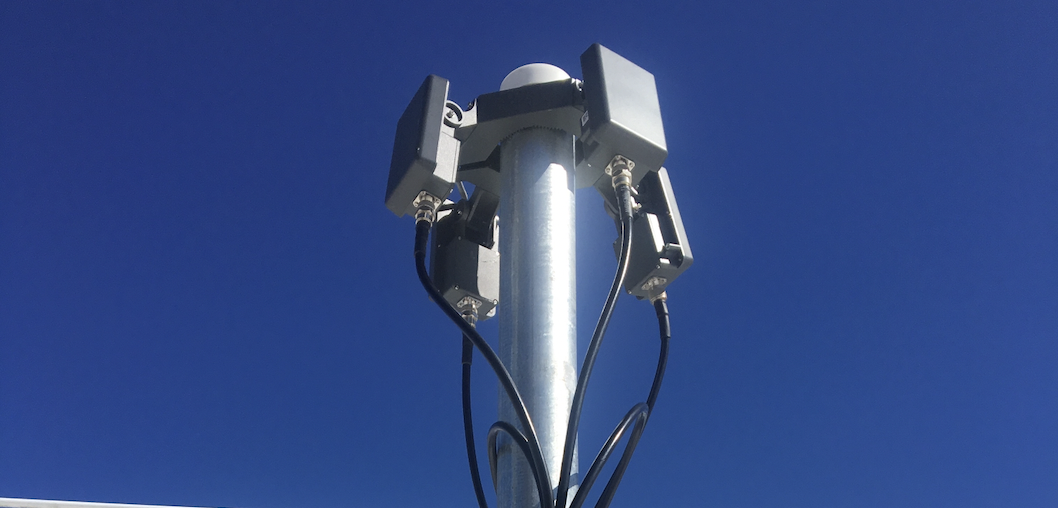Imagine this: One of your patients' relatives finds his wrecked car in the parking lot after visiting your hospital and immediately demands that you identify the drone's operator. As the event occurred on your property, you may be at risk of legal action if you do not have drone detection software that can pinpoint where the offender was.
The rapid developments in drone technology have fundamentally transformed various sectors. Drones provide a wide variety of ever-evolving applications, spanning from excellent aerial photography to creative delivery solutions. In the healthcare sector, drones have the potential to revolutionize medical sample delivery, emergency response, and disaster relief operations, among other uses.
However, alongside these exciting possibilities, the increasing presence of drones near hospitals and medical facilities also presents a unique set of challenges. Healthcare organizations face an increasing threat of unauthorized drone activity within their premises. These rogue drones not only disrupt critical operations but also pose significant safety risks to patients, staff, and visitors. Furthermore, they can lead to costly legal battles, financial liabilities, and reputational damage if not addressed proactively.
Real-Life Incidents and Unforeseen Consequences:
The dangers posed by drones in healthcare settings are not mere hypotheticals; they are backed by real-life incidents that underscore the urgency of implementing robust security measures.
- Disrupted Medical Transport in Idaho: A drone flying near a hospital in Idaho significantly delayed the emergency medical helicopter transport of a crash victim. This delay could have had life-or-death consequences for the patient, highlighting the potential disruption drones can cause to time-sensitive medical operations. Delays in critical medical transportation can have severe consequences for patient outcomes and potentially lead to lawsuits or negative publicity.
- Injured Baby in New York City: A drone collision in New York City resulted in injuries to a baby, raising serious concerns about public safety in the vicinity of hospitals. This incident sparked an FAA investigation and emphasized the potential for even small drones to cause serious harm. In cases like this, hospitals risk facing legal repercussions if a drone causes injury or property damage on their premises.
As these examples illustrate, drone incidents at healthcare facilities can have far-reaching legal and financial implications. Therefore, healthcare organizations must ensure compliance with various regulations, including privacy laws and airspace restrictions. Failure to address drone threats proactively can result in hefty fines, legal battles, and severe reputational damage that can erode public trust.
How AirSight Can Help:
Fortunately, there are solutions available to help healthcare facilities mitigate the risks associated with drone activity. AirSight offers a cutting-edge solution to address the unique drone security challenges faced by hospitals and medical centers. The AirGuard system is a comprehensive drone detection and tracking platform that provides a multi-layered defense against unauthorized drone activity.
- Early Detection and Identification: AirGuard's advanced sensors can detect unauthorized drones the moment they enter the airspace around a healthcare facility. This early detection capability empowers security teams to respond swiftly and take proactive measures to mitigate potential threats.
- Pilot Tracking and Source Mitigation: What sets AirGuard apart is its ability to not only detect drones but also track the pilots operating them. By pinpointing the location of the drone pilot, AirGuard enables healthcare organizations to work closely with local law enforcement to address the threat at its source, ensuring a more comprehensive security approach.
- Comprehensive Record-Keeping: AirGuard maintains a detailed historical record of all drone activity in the vicinity of a healthcare facility. This valuable data can be used for incident investigation, security analysis, and continuous improvement of drone mitigation strategies.
- Advanced Detection Capabilities: AirGuard's most advanced configuration incorporates both camera and radar technologies, providing unparalleled accuracy in drone detection and tracking. This multi-sensor approach ensures a high level of reliability and minimizes the risk of false alarms, allowing healthcare facilities to respond to genuine threats with confidence.
- Compliance and Privacy Protection: Designed with compliance in mind, AirGuard operates entirely passively, adhering to FAA regulations and ensuring the privacy of patients, staff, and visitors is never compromised during drone detection and tracking operations.
Protect your patients, staff, and visitors, and ensure the smooth operation of your critical operations. Contact AirSight today and learn how we can help you safeguard your healthcare environment.

.png)









